IRDR Annual Conference 2023 – Risk Without Borders
22 June 2023, 9:00 am–5:30 pm

What impact do borders – physical and metaphorical – mean for risk researchers and practitioners? The 13th IRDR Annual Conference will examine the definition of borders from multiple perspectives and how to overcome the challenges they pose.
This event is free.
Event Information
Open to
- All
Availability
- Yes
Cost
- Free
Organiser
-
Sarah Jeal – UCL Institute for Risk and Disaster Reduction
Location
-
Ambrose Fleming Lecture Theatre and Roberts FoyerRoberts Engineering BuildingMalet Place, off Torrington PlaceLondonWC1E 7JEUnited Kingdom
Reducing disaster risk and the impact of humanitarian crises has many difficulties. One such challenge is working across, along or through borders, both physical and metaphorical, and overcoming the barriers these can impose. The 13th IRDR Annual Conference will examine the challenges and possible solutions that risk researchers and practitioners face when assessing, managing and reducing risk across different borders from multiple perspectives including economic and political formal and informal borders considering data, communication, collaboration, and diplomacy.
In addition to lively panel discussions, we will also welcome Professor Stefan Dercon from the Blavatkin School of Government, Oxford and former Chief Economist of DFID to give the keynote speech and Judge Mykola Gnatovskyy, European Court of Human Rights, in conversation with our own Dr Yulia Ioffe.
The conference will be followed by a drinks reception and PhD research exhibition.
#IRDR13
Programme
| Time | Session |
|---|---|
| 09:00-09:15 | Conference lecture theatre opens (registration from 8.45am) |
| 09:15-09:30 | Welcome, Prof Joanna Faure Walker |
| 09:30-10:45 | Keynote: Agency, Anticipation and Disaster Risk Reduction |
| 10:45-11:15 | Break |
| 11:15- 12:15 | In Conversation Judge Mykola Gnatovskyy, European Court of Human Rights [Chair: Dr Yulia Ioffe, IRDR] |
| 12:15-12:45 | Disaster Diplomacy |
| 12:45-14:00 | Lunch break |
| 14:00-15:30 | Panel 1: Data Without Borders [Chairs: Dr Saman Ghaffarian, IRDR, and Dr Ting Sun, IRDR]
|
| 15:30-16:00 | Break |
| 16:00-17:30 | Panel 2: Scientists beyond borders [Chair: Prof Fatemeh Jalayer, IRDR].
|
| 17:30-17:40 | Closing remarks |
| 17:40-19:00 | IRDR PhD poster exhibition and networking reception |
Confirmed speakers
Welcome
- Prof Joanna Faure Walker, UCL Institute for Risk and Disaster Reduction (IRDR)
- Joanna is Professor in Earthquake Geology and Disaster Risk Reduction and Head of Department.

Keynote: Agency, Anticipation and Disaster Risk Reduction
- Stefan Dercon, Professor of Economic Policy,
Blavatkin School of Government, Oxford 
Professor Stefan Dercon is Professor of Economic Policy at the Blavatnik School of Government and the Economics Department, University of Oxford. He is also Director of the Centre for the Study of African Economies.
He combines his academic career with work as a policy advisor, providing strategic economic and development advice, and promoting the use of evidence in decision making. Between 2011 and 2017, he was Chief Economist of the Department of International Development (DFID), the government department in charge with the UK’s aid policy and spending. Between 2020-2022, he was the Development Policy Advisor to successive Foreign Secretaries at the UK’s Foreign, Commonwealth and Development Office.
His research interests concern what keeps some people and countries poor: the failures of markets, governments and politics, mainly in Africa, and how to achieve change.
His latest book, Gambling on Development: Why some countries win and others lose was published in May 2022. It draws on his academic research as well as his policy experience across three decades and 40-odd countries, exploring why some countries have managed to settle on elite bargains favouring growth and development, and others did not. Previously, Dull Disasters? How Planning Ahead Will Make A Difference was published in 2016, and provides a blueprint for renewed application of science, improved decision making, better preparedness, and pre-arranged finance in the face of natural disasters.
He is a Fellow of BREAD, a Research Fellow of CEPR and of IZA, an Affiliate of J-PAL, a Non-resident Fellow, Centre for Global Development, Washington and Fellow of the Royal Society of Arts and Manufacture (FRSA).
In 2018, the Queen awarded him as an honorary Companion of the Most Distinguished Order of St Michael and St George (CMG) for services to economics and international development.
- Chair: Dr Rozana Himaz, UCL IRDR
- Dr Rozana Himaz is Associate Professor in Humanitarian Economics in the IRDR. Her research interests look at (i) how catastrophe modelling can incorporate ‘non-conventional’ aspects such as impacts on livelihood and mental health (ii) how welfare impacts of shocks on individuals and households evolve over time and (iii) how program/policy impacts can be evaluated. She focuses mainly on developing countries such as Indonesia, Ethiopia, India and Sri Lanka.
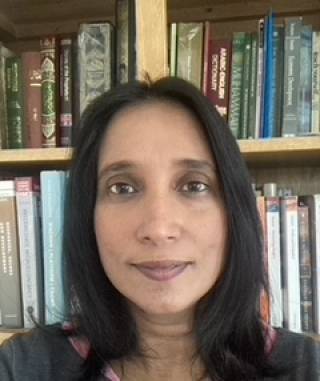
In Conversation [Chair: Dr Yulia Ioffe, UCL IRDR]
- Judge Mykola Gnatovskyy, European Court of Human Rights
- Dr Mykola Gnatovskyy holds an LL.M. (1999) and a Ph.D. (2002) in International Law. He is the author of many publications on European and international human rights law, as well as international humanitarian law and international criminal law.

Since 2002, he has taught at the Institute of International Relations of Taras Shevchenko National University of Kyiv and cooperated with the International Committee of the Red Cross as an academic partner.
In 2009–2021 Dr Gnatovskyy was a member of the European Committee for the Prevention of Torture and Inhuman or Degrading Treatment or Punishment (CPT). He served as Vice-President of the CPT for two years (2013–2015) and as President of the CPT for six years (2015–2021).
Since June 2022 he serves as judge of the European Court of Human Rights elected in respect of Ukraine.
- Chair: Dr Yulia Ioffe, UCL IRDR
- Dr Yulia Ioffe is an an international lawyer and Lecturer in Humanitarian Law and Human Rights in the IRDR. She has worked with a range of international organisations and NGOs on humanitarian policy development and practice, including the International Court of Justice, the UNHCR Representation in Bosnia and Herzegovina, the UNHCR Regional Representation for Belarus, Moldova, and Ukraine, and the Ukrainian Red Cross Society. Her research interests lie within international human rights law, forced migration, and children’s rights.
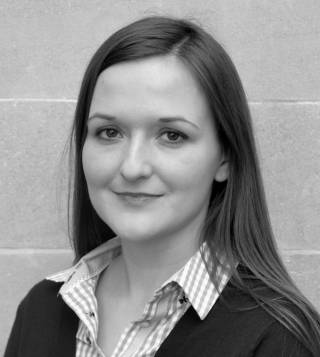
Disaster Diplomacy
- Prof Ilan Kelman, UCL IRDR, UK
- Ilan Kelman is Professor of Disasters and Health in the UCL Institute for Risk and Disaster and a Professor at the University of Agder, Kristiansand in Norway. His overall research interest is linking disasters and health, including the integration of climate change into disaster research and health research. It covers three main areas: disaster diplomacy and health diplomacy; island sustainability involving safe and healthy communities in isolated locations; and risk education for health and disasters. He has written extensively on the subject, including his laterst book 'Disaster by Choice'.
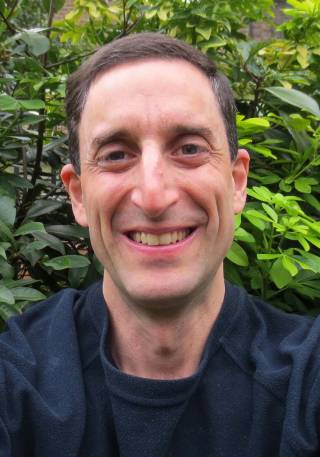
Follow Ilan on Twitter @IlanKelman
Panel 1: Data Without Borders [Chairs: Dr Saman Ghaffarian, IRDR, and Dr Ting Sun, IRDR]
Thanks to recent technological advances, we now have unprecedented access to an extensive range of data, encompassing diverse types, sizes, and volumes, complemented by advanced models like Artificial Intelligence and physical modelling techniques. Through remote sensing platforms and techniques, we can now collect data from the most remote areas, while physical modelling and AI methods enable the generation and utilisation of essential data and information. While this abundance of data offers immense potential for applications in disaster risk reduction, it also gives rise to ethical concerns and necessitates novel approaches from AI and physical modelling to analyse and process these vast datasets.
- Prof. Dr Mehmet Akşit, University of Twente, the Netherlands
- Prof. Dr Mehmet Akşit is Emeritus Professor at the University of Twente and Director of the LAB Digital Management of Disasters. He received an electrical engineering degree from the Ankara Engineering Academy (1976), electrical engineering B.Sc. and MSc. degrees (Ir.) from the Technical University of Eindhoven with honors (1980), and a Ph.D. degree from the University of Twente (1989). Currently, he is establishing a research center on 'Digital Management of Disasters' at AFAD Presidency in Ankara, Turkey. This project is supported by Tübitak, Turkey under the program 2232 International Fellowship for Outstanding Researchers.

Dr Akşit and the members of his group have contributed to various topics in software engineering, such as programming languages, software design, application frameworks, software quality attributes and university-industry cooperation.
As for programming languages, the group has developed one of the first aspect-oriented languages called Composition-Filters. Also, a language that can explicitly represent emergent behavior has been developed. The group has introduced synthesis-based software design methods and fuzzy-probabilistic techniques for modeling uncertainty in software design processes. Various methods and techniques have been defined to enhance certain quality attributes of software such as adaptability, evolvability, documentability, availability, traceability, relevancy, energy reducibility and schedulablity. Accordingly, multi-criteria trade-off techniques have been introduced to optimize software architectures. Since 2011, the group has been developing new company maturity models and processes so that companies can be conscious about the capabilities and competences they need.
In 2017, Dr Aksit received the SDPS Priscilla and Raymond T. Yeh Award for Lifetime Achievements in Software Research, Technology Innovation or Engineering Education.
Conference talk title: Automating disaster management processes requires different kinds of data to gather
To carry out the required aid operations efficiently and effectively, after an occurrence of a disaster such as an earthquake, emergency control centres must determine the effect of disasters precisely and timely. Various kinds of data gathering techniques can be used to collect data from disaster areas, such as sensors, cameras, and unmanned aerial vehicles (UAV’s). Unfortunately, although there is a lot of interest in gathering and analysing data, there is less attention paid on automating the necessary management processes. This talk proposes design and implementation of new generation computer systems for process automation, from data gathering and fusion, interpretation, task generation and optimization, and to intervention activities. To optimize these processes according to the desired performance indicators, additional kinds of data must be gathered in addition to data over the effect of disasters.
- Dr Ainslie Johnstone, The Economist, UK
- Dr Ainslie Johnstone is a data journalist based in London. She joined The Economist newspaper in 2021. Prior to this she worked as a postdoctoral research fellow at the UCL Institute of Neurology. Ainslie completed her DPhil in Clinical Neuroscience at University of Oxford, and MA in Natural Sciences from University of Cambridge.

At The Economist she writes data-driven articles about many topics, but her main interests are science, health, climate, and tech. She often works with geospatial and satellite data. In the last year her projects have included quantifying the number of people experiencing extreme heat, estimating the impact of high-energy prices on winter deaths in Europe, and performing satellite damage assessments during the war in Ukraine and following the earthquake in Turkey.
She also writes about neuroscience for the paper’s science section.
Follow Ainslie on Twitter: @AinslieJstone
Conference talk title: Data without Borders: Communicating insights from data
This short talk will focus on how The Economist’s data team goes about communicating insights from data. Using examples from projects she has worked on over the last few years (many of which have focused on climate change, natural disasters, and war), Ainslie will discuss how they distil findings from their data analysis into news stories for an intelligent, but general audience. She will talk about how they use charts, numbers, and text to tell a story, and also how they use them to communicate uncertainty.
- Dr Samantha Burgess, ECMWF
- Dr Samantha Burgess is Deputy Director of the Copernicus Climate Change Service (C3S) at ECMWF (European Centre for Medium-Range Weather Forecasts), working at the science-policy interface to improve understanding of climate risks. Within C3S, she leads the climate monitoring, climate observations and quality assurance parts of the programme, working with partners to inform better decisions for society and governments.

Samantha has previously focused on environmental resilience, ocean governance and sustainable finance in roles including chief scientific advisor, research director and head of policy in government, the private sector, NGOs and academia.
Follow Samantha on Twitter: @OceanTerra
- Chair: Dr Saman Ghaffarian, UCL IRDR, UK
- Dr Saman Ghaffarian is Lecturer in Geospatial Science at the UCL Institute for Risk and Disaster Reduction.
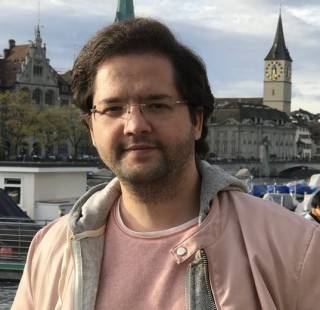
His main research area is to use geospatial data, Artificial Intelligence (AI), cloud computing and socio-economic modelling to assess, mitigate and manage disaster risk. He particularly studies disaster and agricultural damage, recovery, resilience, and vulnerability assessments using big/geospatial data, advanced machine learning methods, agent-based modelling, and multi-criteria decision-making (MCDM) models. He employs various remote sensing data such as multi-spectral satellite images, UAV/drone, Light Detection and Ranging (LiDAR), Hyperspectral, Synthetic Aperture Radar (SAR), and ground-based data sets in his research.
Conference talk title: Artificial Intelligence (AI) loves data without borders: Insights from post-disaster recovery assessment
First responders and recovery planners require timely and accurate information about the affected areas and elements at risk, such as buildings. This should encompass both existing buildings and newly constructed ones during the recovery phase. This information plays a crucial role in assisting victims and making well-informed decisions throughout the post-disaster recovery process. Recently, artificial intelligence (AI) and machine learning-based approaches have emerged as cutting-edge methods for extracting valuable insights from diverse sources, such as remote sensing images, to assess damage and facilitate reconstruction efforts. However, the accuracy and applicability of these approaches heavily rely on the quantity, quality, and diversity of available data. This characteristic necessitates the availability of comprehensive and "data without borders" from various perspectives. Nevertheless, even with this abundance of data, a fundamental question remains: can we truly trust AI? - Chair: Dr Ting Sun, UCL IRDR, UK
- Dr Ting Sun is Lecturer in Climate and Meteorological Hazard Risks in the UCL Institute for Risk and Disaster Reduction (IRDR). He is a climate scholar for cities with multidisciplinary background in hydrology, meteorology and built environment. His research interests include impacts of weather and climate extremes (e.g. heat waves, extreme rainfall, etc.) in cities and urban climate modelling across multiple scales (from neighbourhood to globe) as well their broad linkages with public health and building energy sectors. He holds a NERC Independent Research Fellowship to lead the project entitled “Building Resilient Cities for Heat Waves”.
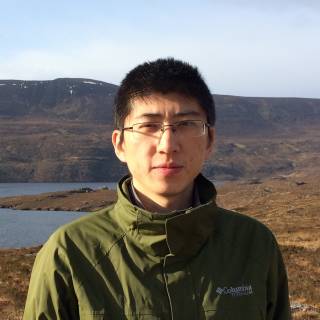
Panel 2: Scientists beyond borders [Chair: Prof Fatemeh Jalayer, UCL IRDR]
Global warming and changing climate, pandemic, disasters, wars, and conflicts have touched our lives in quite different ways; and yet, no one has managed to remain unscathed. The challenges we face and the problems we try to solve as scientists and researchers, have already managed to transcend the boundaries and to span across the various divides. Our sole hope in tackling these challenges and in finding solutions again lies in scientific collaboration and knowledge exchange transcending borders and barriers of political, social, geographic, linguistic, physical, cultural, disciplinary, and sectoral nature. This discussion addresses the barriers to scientific collaboration and how they can be overcome by fostering access and open science initiatives, communication, dialogue, diplomacy, participation, engagement, and logistics.
- Ms Helen Glaves, British Geological Survey
- Helen Glaves is the Senior Data Scientist at the British Geological Survey. She serves as Editor for the American Geophysical Union Earth and Space Science journal and was awarded the European Geosciences Union Ian McHarg medal. Helen serves as the Vice President of the European Geosciences Union as the outgoing President.

Helen has contributed to novel ways to store and share marine research data. She is the programme manager of the Research Data Alliance, which she has been involved with since its inception. She co-ordinates the Ocean Data Interoperability Platform (ODIP), which looks to share ocean data across scientific domains and international borders. She led the expansion of ODIP (ODIP-II) that supported transferring data in different formats between research centres. ODIP-II makes use of the Natural Environment Research Council (NERC) vocabulary server to transfer between different data formats. The vocabulary server was developed by the British Oceanographic Data Centre and National Oceanography Centre.
In 2016 Helen was awarded the European Geosciences Union (EGU) Ian McHarg medal. She serves as the President of the EGU Earth and Space Science Informatics section. She was elected the President of the European Geosciences Union from 2021 to 2023 and is now Vice-President. She is an Editor of the American Geophysical Union journal Earth and Space Science.
Conference talk title: Evolving global research landscape through open science initiatives
- Dr Dan Haines, University of Bristol, UK
- Dr Dan Haines is Associate Professor in Environmental History in the Department of History (Historical Studies) Cabot Institute for the Environment at Bristol University.

Dan is an environmental historian of South Asia, focusing on India, Pakistan and Nepal. He currently works on the politics and culture of natural hazards and is writing a book about the 1935 earthquake at Quetta, Balochistan. He previously wrote about the Indus River system – whether damming it (his first book, Building the Empire, Building the Nation) or sharing its waters between India and Pakistan (his second book, Rivers Divided). He just finished a two-year secondment to the UK Foreign, Commonwealth and Development Office. Dan currently teaches in the History Department at the University of Bristol, but from July 2023 will move to the Institute for Risk and Disaster Reduction, University College London. He once did science to a glacier by hitting it with an ice pick.
Conference talk title: History on Shaky Ground: Researching Earthquakes Across Geographical and Disciplinary Boundaries
How can history contribute to hazards research and our understanding of disaster risk reduction? I outline history’s two roles. First, historians analyse social change across time which helps to explain why populations have become vulnerable and offers starting points for improving resilience. Secondly, historians can tap different sources of data which help physical scientists to build better models. Both approaches can thrive in collaborative, international projects. I illustrate these two uses of history through examples of research that I have been involved in, working with researchers from Nepal, Bhutan and India.- Dr Ananwat Suppasri, Tohoku University, Japan
- Dr. Anawat Suppasri obtained a PhD in Tsunami Engineering from Tohoku University in 2010. After which, he received a research grant to continue his research of tsunami risk assessment in Tohoku University. Since April 2012, he became an Associate Professor at the International Research Institute of Disaster Science, Tohoku University. After the 2011 Tohoku tsunami, he took many experts and non-experts from both Japan and overseas to the tsunami affected areas and transferred new Japanese knowledge on disaster mitigation. At present, his research focuses on tsunami numerical simulation, tsunami fragility analysis, tsunami evacuation and disaster mitigation education. He has many coauthored papers with international researchers including from UCL and that his publications are awarded, highly cited or selected as highlighted papers. His research publications received best paper and citation awards from Japan Society of Civil Engineers in 2011, 2014, 2017 and 2019, Japan Foundation of Ocean Engineering in 2011 and Japan Society for Natural Disaster Science in 2013. He is an editorial board member of Coastal Engineering Journal, International Journal of Disaster Risk Reduction and Geoscience letters. His international contribution to UN related agencies such as UNDP and UNDRR was highly recognized and awarded by the former Japanese prime minister Yasuhiro Nakasone in 2018 and the Commendation for Science and Technology by the Minister of Education, Culture, Sports, Science and Technology (MEXT) The Young Scientists’ Award in 2022.

Conference talk title: How building international scientific collaborations can help in tackling disaster risks?
- Chair: Prof Fatemeh Jalayer, UCL IRDR, UK
- Fatemeh Jalayer is Professor of Geophysical Hazard Risks at the UCL Institute for Risk and Disaster Reduction (IRDR).
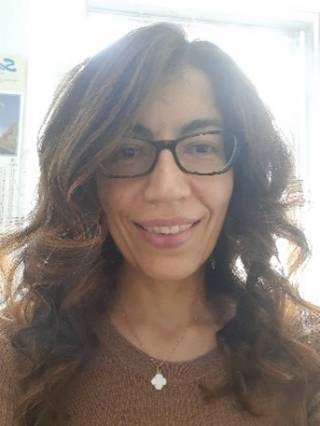
Her research focuses on probabilistic methods and computational tools for risk modelling and disaster risk reduction. She is interested in numerical modelling of cascading phenomena and multi-risk assessment, involving treatment of uncertainties and consideration of time-dependent factors and drivers. She is increasingly interested in risk modelling considering the societal context and the complex interactions between human, nature, and the built environment.
- Dr Carla Washbourne, UCL, UK
- Carla Washbourne is Associate Professor in STEaPP in the UCL Faculty of Engineering Science. She is an interdisciplinary researcher, practitioner and educator at the interface of physical and social sciences and public policy. Her work seeks to understand and improve decision-making and planning in urban settings, focussing on urban environment and sustainability issues.

Carla completed an MSc in Engineering Geology and PhD in Geosciences (Newcastle University), investigating the potential for engineering soils to act as carbon sinks, which spurred her initial interest in policy and its application to the earth and environmental sciences.
She has worked in the UK Parliamentary Office of Science and Technology as a Physical Sciences, IT and Communications Adviser and is a Research Associate at the Gauteng City-Region Observatory (GCRO) in Johannesburg, South Africa and a member of the UCL Urban Innovation and Policy Laboratory.
Conference talk title: The science policy interface on the environment: local to global
This talk will focus on efforts tackling the biodiversity crisis from hyperlocal to global scale through some of the science/policy interfaces she is involved in with a focus on opportunities and barriers.
IRDR PhD poster exhibition
- Convener: Dr Philip Cunliffe
Dr Philip Cunliffe is Associate Professor in International Relations and Graduate Tutor (Research) at the UCL Institute for Risk and Disaster Reduction.
His academic expertise is focused on questions of sovereignty, international order, military intervention and liberal international conflict management. He also has research interests in critical social theory and International Relations theory.
He completed his doctorate in War Studies at King’s College London; his thesis examined developing countries' personnel contribution to United Nations peacekeeping operations across 1997 to 2007. In 2008 he was appointed to provide reports on Western Balkan politics for the Economist Intelligence Unit, and was appointed a fellow of the High Education Academy in 2014.
He has undertaken a variety of roles in the wider academic community. Across 2006–2010 he was one of the founding editors of the Routledge 'Journal of Intervention and Statebuilding' and across 2014–2020 he served as Editor in Chief of the Routledge journal 'International Peacekeeping'. In 2018 he helped establish the ‘Peacekeeping and Peacebuilding’ working group of the British International Studies Association. He has appeared frequently in broadcast and print media and is one of the co-hosts of the @bungacast podcast and tweets @thephilippics.
Please note that lunch will not be provided, but there are plenty of places on campus and the surrounding area where food can be purchased.
This event will be livestreamed and available on the IRDR YouTube channel. You do not need to register to view the livestream or recordings, only to attend in person.
 Close
Close

